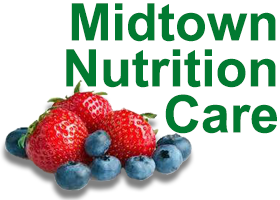PCOS
Around 10% of women of childbearing age in the United States have PCOS (polycystic ovarian syndrome), making it one of the most common hormonal disorders in women and the primary reason for female infertility.
PCOS is a health condition characterized by an imbalance of hormones in the body. Although called polycystic ovarian syndrome, a woman with PCOS may, or may not, have ovarian cysts. The exact cause of PCOS is unknown, but thought to be caused by both genetic and environmental factors.
Signs a woman may have PCOS include:
—Irregular or missed periods
—Enlarged ovaries which may contain multiple small cyst-like structures (immature ovarian follicles)
—Weight gain
—Fatigue
—Unwanted hair growth on the face, arms, back, chest, thumbs, toes and abdomen
—Thinning hair on the head
—Infertility
—Acne
—Mood changes (mood swings, depression, anxiety)
—Pelvic pain
—Headaches
—Sleep problems
There is no test available to specifically diagnosis PCOS. Instead, a general diagnosis requires two of the following: elevated levels of male hormones, missed or irregular periods, and/or at least 12 small cysts on one or both ovaries.
Women with PCOS are also at higher risk for developing diabetes, high cholesterol, heart disease, stroke, endometrial cancer, sleep apnea and obesity.
Nutrition Recommendations
Avoid Skipping Meals
Going long periods of time without eating may seem like a good idea if you want to lose weight. However, this can lead to cravings and blood sugar swings. Instead, aim to eat moderate servings every 3-4 hours, including snacks in-between meals. Make sure your servings are moderate so that you can lose weight if you are overweight.
Eat Protein
Getting adequate amounts of protein with your meals and snacks, particularly in the morning and afternoon, can help manage insulin and blood sugar levels, minimize cravings that can sneak up later in the day, and help stimulate the body to build muscle. Sources of protein include lean meats, poultry, fish, eggs, low fat dairy, soy, nuts and beans.
Include Healthy Fats
Heart healthy fats not only protect your heart but help fight inflammation. Examples include olive oil, nuts, nut butters, avocado, seeds, olives, canola oil and fatty fish. Aim to eat fatty fish (salmon, tuna, sardines) twice per week.
Increase Fruits and Vegetables
Fruits and Vegetables are rich in antioxidants, and high in fiber, and low in calories. They can help combat oxidative stress and blood sugar swings. Aim to eat at least 2 cups of fruit per day and at least 2.5 cups of vegetables per day.
Don’t Avoid Carbohydrates – but aim for Whole Grains.
Eating too few carbohydrates may lead to intense cravings for simple, more refined carbohydrates, particularly later in the day. Examples of whole grains include brown rice, quinoa, whole wheat pasta, oatmeal, barley and whole wheat bread.
